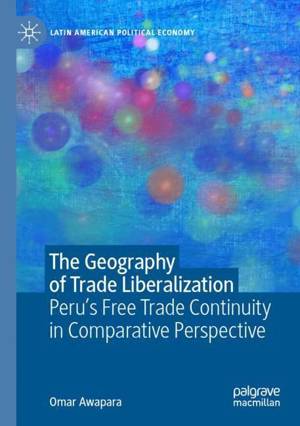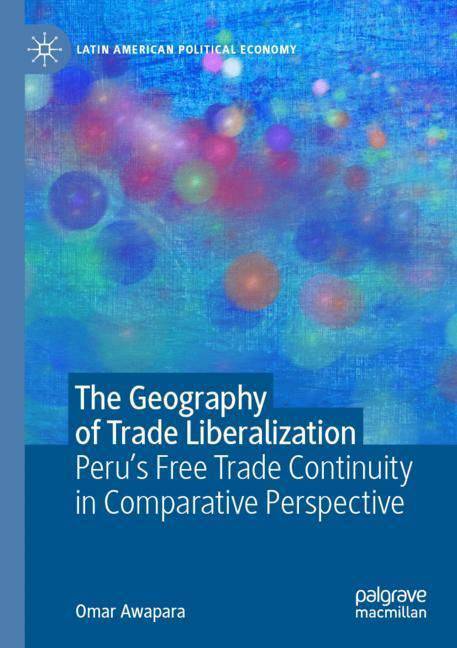
- Retrait gratuit dans votre magasin Club
- 7.000.000 titres dans notre catalogue
- Payer en toute sécurité
- Toujours un magasin près de chez vous
- Retrait gratuit dans votre magasin Club
- 7.000.000 titres dans notre catalogue
- Payer en toute sécurité
- Toujours un magasin près de chez vous
The Geography of Trade Liberalization
Peru's Free Trade Continuity in Comparative Perspective
Omar Awapara
137,45 €
+ 274 points
Format
Description
This book answers why anti-trade forces in developing countries sometimes fail to effectively exert pressure on their governments. The backlash against globalization spread across several Latin American countries in the 2000s, yet a few countries such as Peru doubled down on their bets on free trade by signing bilateral agreements with the US and the EU. This study uses evidence from three Latin American countries (Peru, Argentina, and Bolivia) to suggest that geography can play a significant role in shaping trade preferences and undermining the formation and clout of distributional coalitions that seek protectionism. Because trade liberalization can have uneven distributional impacts along regional lines, trade liberalization losers can find themselves in unfavorable conditions to associate and engage in collective action. Under these circumstances, few coalitions emerge to battle for protection in the policy arena, and when they do, geographic distance from decision-makers in the capital city can be a significant barrier to realizing their interests. As a result, even where a majority of the population living in regions that have not benefitted from trade elect a leftist president, trade reform reversal will not occur unless protectionist interests are close to the capital city. The contrast between Peru, on one side, and Argentina and Bolivia, on the other, highlights the powerful influence geography can have on reversing trade policy or preserving the status quo.
Spécifications
Parties prenantes
- Auteur(s) :
- Editeur:
Contenu
- Nombre de pages :
- 244
- Langue:
- Anglais
- Collection :
Caractéristiques
- EAN:
- 9783031234224
- Date de parution :
- 03-01-24
- Format:
- Livre broché
- Format numérique:
- Trade paperback (VS)
- Dimensions :
- 148 mm x 210 mm
- Poids :
- 317 g







